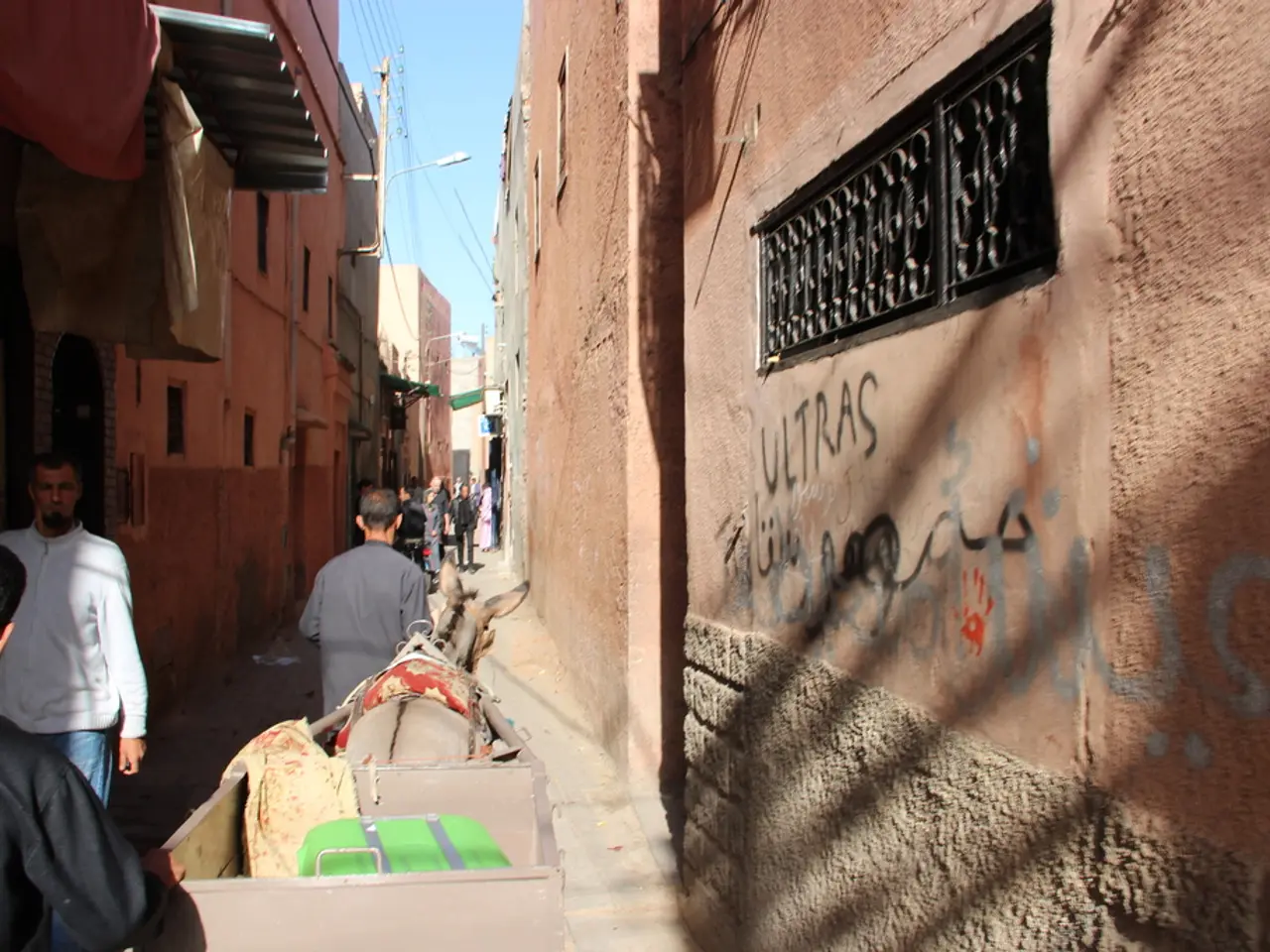Experts voice concerns: Canada's efforts deemed insufficient
Canada is facing calls to increase its efforts in accepting more Palestinian refugees, as international law experts highlight the ongoing severe humanitarian crisis in Gaza and the slow progress in reuniting families separated by the conflict.
Prime Minister Benjamin Netanyahu's announcement that Israel is not pushing Palestinians out but is allowing them to leave, as the country considers a massive colonization project in the West Bank and seeks to take control of Gaza, has added to the urgency of the situation.
Audrey Macklin, a professor at the University of Toronto's Faculty of Law, criticizes Ottawa's family reunification program for Palestinians as insufficient and a symbolic gesture. She raises concern about Canada's military exports to Israel, stating that there is evidence of military weapons parts and munitions being sent to Israel.
The Canadian government initially committed to accepting up to 7,500 Palestinians from Gaza who have family members in Canada, offering them fee-exempt work permits, study permits, and temporary resident status. However, concerns have been raised about the program's effectiveness, as despite many applicants meeting eligibility, clearing security and background checks, the actual number of Palestinians who have been safely evacuated and admitted under the program remains very low.
Further issues relate to the mandatory requirements to complete applications, such as providing biometrics, which many Palestinians cannot fulfill because they remain trapped in Gaza due to border closures and security restrictions beyond Canada’s control. While Canada continues to advocate for safe exit routes for those still in Gaza and processes applications from extended family members, the inability of applicants to leave Gaza and complete formalities limits the program’s impact.
François Crépeau, emeritus professor of law at McGill University, praises Ottawa's family reunification measures but finds them insufficient. He suggests setting up temporary hospitals in countries like Cyprus as an alternative to welcoming all Palestinians to Canada. Crépeau also suggests concretely helping Palestinians, particularly the most vulnerable, including those suffering from malnutrition, injured, orphans, women who have become sole heads of families with multiple children, and the elderly.
NGOs like Médecins Sans Frontières already provide care on-site, often in dangerous contexts, with food and essential goods trickling in. However, the ongoing crisis in Gaza remains dire, with many Palestinians unable to leave and access safety.
In summary, experts urge Canada to accelerate and expand its refugee intake by addressing barriers that prevent Palestinians from safely leaving Gaza and completing reunification procedures. The current measures, though ongoing, are insufficient given the scale and urgency of the humanitarian crisis.
- The ongoing crisis in Gaza, marked by war-and-conflicts and resulting in severe humanitarian issues, has been a point of debate in the general-news and political discussions, with calls for Canada to increase its efforts in accepting more Palestinian refugees, given this context of justice and human rights.
- The Canadian government's family reunification program for Palestinians, while offering some support, has been criticized as insufficient by experts like Audrey Macklin, who raises concerns about Canada's military exports to Israel, a matter intertwined with politics and policy-and-legislation.
- Despite the Canadian government's commitment to accept up to 7,500 Palestinians, concerns have been raised about the program's effectiveness, with many applicants facing difficulties in providing mandatory requirements, such as biometrics, due to migration-related barriers beyond Canada’s control.
- In light of the urgent situation in Gaza, some experts like François Crépeau propose alternative solutions, such as setting up temporary hospitals in neighboring countries, aiming to provide immediate relief to the most vulnerable Palestinians, including those suffering from crime-and-justice-related issues like malnutrition, injury, orphanhood, and more.





